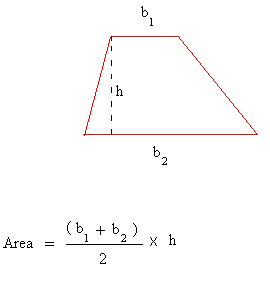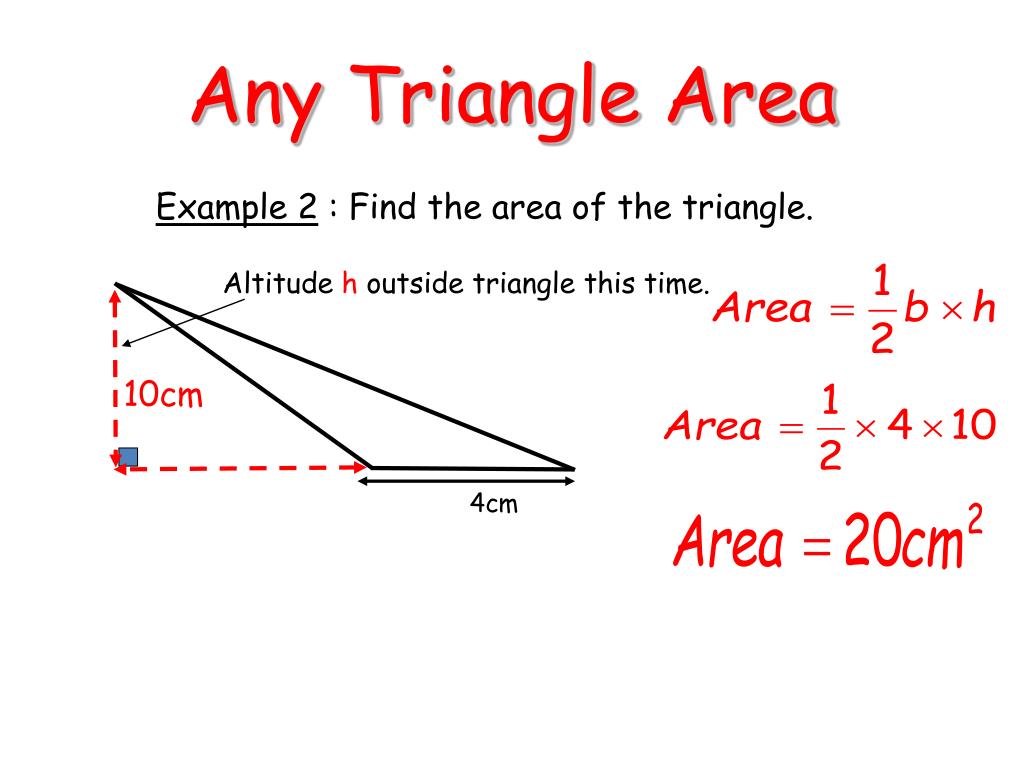

Pretty! Finally, by the similarity argument of the first solution, we know the sides of $\triangle OAB$, so we can find $\alpha$ by using Heron's Formula. Since $AB=20$ and $CD=7$, the sides of $\triangle OCD$ are $\frac\right)^2\alpha.$$ Substitute the values of the height and bases (and ) into the formula for the area of a trapezoid. The area of a trapezoid is equal to times the height times the sum of the bases. Note that $\triangle OAB$ and $\triangle OCD$ are similar. Find the Area trapezoid (5cm)(2cm)(unknown) Step 1. (a) Show that the area of the triangle is given by A1/2s2 sin. If the trapezoid's area is 77 square centimeters and the bases are 9 centimeters and 13 centimeters.First Solution: Let our trapezoid be $ABCD$ as in the diagram supplied by pedja. So my question is: The included angle of the two sides of a constant equal length s of an isosceles triangle is. The distance (at right angles) from one base to the other is called the 'altitude'. If the trapezoid's area is 48 square inches and the bases are 4 inches and 8 inches. A trapezoid is a 4-sided flat shape with straight sides that has a pair of opposite sides parallel (marked with arrows below): is an isosceles trapezoid when it has equal angles from a parallel side. Cylinder calculator is an online Geometry tool requires base radius length and height of a cylinder. ANSWER BOX: A = m 2įind the area of a trapezoid with bases of 17 centimeters and 19 centimeters, and a height of 2 centimeters. Volume & surface area of cylinder calculator uses base radius length and height of a cylinder and calculates the surface area and volume of the cylinder. ANSWER BOX: A = ft 2įind the area of a trapezoid with bases of 12 meters and 6 meters, and a height of 5 meters. 1.įind the area of a trapezoid with bases of 5 feet and 7 feet, and a height of 3 feet. Calculate a trapezoid area whose height is 5 cm, and the bases are 14 cm and 10 cm.

After you click ENTER, a message will appear in the RESULTS BOX to indicate whether your answer is correct or incorrect. Lateral surface area of a cone (LA) rs r (r 2 + h 2) Total surface area of a cone (TA) LA + BA rs + r 2 r (s + r) r (r + (r 2 + h 2 )) Volume of a cone (V.

Slant height of a cone (s) (r 2 + h 2) Base surface area of a cone (BA) r 2. Your answers should be given as whole numbers greater than zero. Most often used cone formulas when radius (r) and height (h) are known. Click once in an ANSWER BOX and type in your answer then click ENTER. Summary: To find the area of a trapezoid, take the sum of its bases, multiply the sum by the height of the trapezoid, and then divide the result by 2, The formula looks like this:ĭirections: Read each question below. For example, the bases of the isosceles trapezoid are 2 cm, and 5 cm and height is 5cm, then the. If a and b are the bases and h is the height, then the area is calculated as follows: Area of an Isosceles Trapezoid (a+b)h/2 square units. In Example 2, the lateral sides are not perpendicular to the base, so a dotted line is drawn to represent the height.Įxample 1: Find the area of a trapezoid with bases of 10 inches and 14 inches, and a height of 5 inches.Įxample 2: Find the area of a trapezoid with bases of 9 centimeters and 7 centimeters, and a height of 3 centimeters.Įxample 3: The area of a trapezoid is 52 square inches and the bases are 11 inches and 15 inches. The area of the isosceles trapezoid is the average of the base length times the height. An isosceles triangle has a base of 60 cm and a height 2/3 of the base. In Examples 1 and 3 below, the height is a side of the trapezoid since it is perpendicular to the base. Calculate the perimeter and area of an equilateral triangle knowing. However, since the lateral sides are not perpendicular to either of the bases, a dotted line is drawn to represent the height. In the diagram above, both bases are sides of the trapezoid. To find the area of a trapezoid, multiply the base of.


 0 kommentar(er)
0 kommentar(er)
